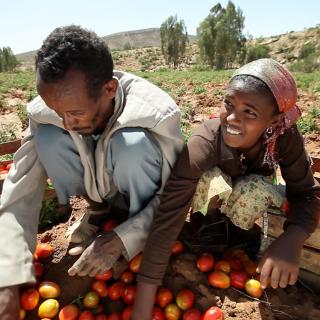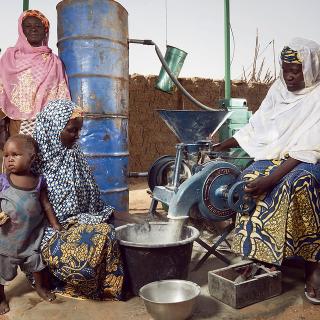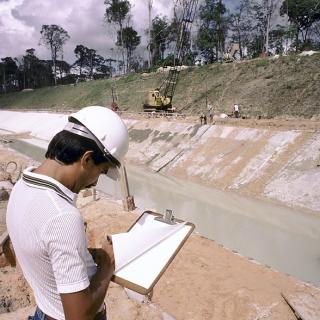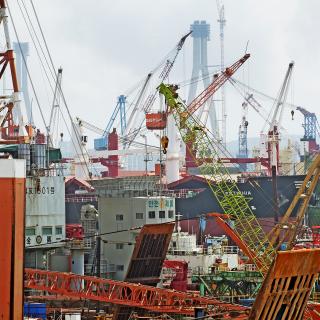The GRiF Secretariat awards $200,000 for project concepts endorsed for ‘scoping’. Scoping allows teams to undertake necessary technical work to ensure viability of the project as well as adequate engagement of relevant counterparts for implementation of the proposed project before a full proposal is developed.
If scoping is successful, a larger grant proposal is prepared to finance the government-selected financial solution and/or associated systems, or a high-impact global goods program with the objective of enabling quick and timely assistance for post-disaster response in countries. All projects are approved by the GRiF Steering Committee.

 Approved Country and Regional Projects
Approved Country and Regional Projects
 Country and Regional Projects in Advanced Scoping
Country and Regional Projects in Advanced Scoping
 Country and Regional Projects in Less Advanced Scoping
Country and Regional Projects in Less Advanced Scoping
 Country and Regional Projects not Moving Forward with GRiF
Country and Regional Projects not Moving Forward with GRiF

The Challenge Fund: Applications of the Challenge Fund Open Data Framework

The objective of the project is to promote and expand the application and use of an open, standardized data schema for hazard, exposure, vulnerability, and loss data. The grant funds the demand-led development of the Risk Data Library, which makes user-ready data sets readily available so that risk experts can spend less time looking for data and more time working with it. The project is also building a global community of users. The project fills a gap identified by a Global Facility for Disaster Reduction and Recovery (GFDRR) and FCDO report, Solving the Puzzle: Innovating to Reduce Risk, which reveals that in many developing countries, the development of risk-reducing policies is constrained by the dearth of available data related to risk.

The Challenge Fund: Innovations in Risk Financing

This project aims to provide grants to projects that support the development of innovative risk financing mechanisms and align management actions with on-the-ground user needs. The project finances grants to develop innovative tools and approaches alongside capacity building of target beneficiaries. This Challenge Fund focuses on three thematic areas that are known to be challenges for DRF and that require innovative solutions: implementing early action in DRF, machine learning and big data for DRF, and DRF mechanisms to manage food insecurity.

Famine Early Action Mechanism

The primary objective of the Famine Early Action Mechanism (FAM) is to help drive global efforts to prevent and respond to famine risks. The GRiF grant provides financing for famine risk monitoring and analytics focused on identifying data that can be used for triggers for financial disbursements; the grant also supports a feasibility study on possible private sector financing solutions to mitigate famine risks. The project connects early warning indicators with existing and innovative financing solutions to promote fast and effective famine risk mitigation and response and pre-arranged implementation arrangements—mechanisms that are currently missing in the international space.

Design of the Start Financing Facility – Supporting Humanitarian Financing Reform for NGOs

This project supports the design of a financial infrastructure with an operational NGO counterpart to deploy donor funds efficiently and effectively to frontline humanitarian NGOs, specifically by using blended approaches that combine pre-arranged funds and leverage insurance. The grant finances a bottom-up, participatory design process; the inception phase involves a stakeholder mapping and stocktaking exercise, as well as a detailed design and feasibility study. The financial architecture is intended to support NGOs, which typically rely on ex post funds to deliver humanitarian relief, in moving toward ex ante funding approaches.

Crisis Risk Finance Analytics

This project supports the World Bank and GRiF in scaling up risk financing operations and impact with innovative risk information. It also selectively supports upstream analytical capacity to develop new risk financing operations for new perils or territories/countries, and contributes to building the foundation that will enable bringing scale to risk financing solutions for years to come. The project supports the World Bank–European Space Agency partnership for risk finance analytics as well as multi-hazard crisis risk analytics. The technical assistance provided under the project leverages innovative analytics, including Earth Observation remote sensing, big data, and predictive analytics to support global identification of risks; national and sectoral diagnostics; the development of objective, timely, reliable risk metrics and triggers; and innovative approaches to assess overlapping risks in complex situations.

Improving Post-Disaster Damage Data Collection – Inventory and Conceptual Design (pilot in Armenia)

This project reviews the existing situation in post-disaster damage information collection and prepares a conceptual design for an improved tool and information technology architecture with an aim to support better decision making on resource allocation, disaster response, and risk reduction. The tool is designed to be generic so-as to be customizable for countries around the world and for various applications. The initial focus in terms of natural hazards is on tropical cyclones, floods, landslides, and earthquakes, with a pilot in Armenia.

Analytics for Preparing a Potential Water Liquidity Facility by Assessing the Financial Impacts of COVID-19 on Water Service Providers in Albania, Colombia, and Brazil

The objective of the project is to support water service providers in efforts to quantify the impact of the COVID-19 crisis and related emergency measures taken, explore options for improving their financial health, and build resilience for responding to future crises, including natural disasters. The activity will use the information from this exercise to explore the creation of a liquidity facility—at the national, regional, or global level—that would provide timely liquidity support to water service providers in ensuring continued delivery of service and in protecting against various risks and shocks in the future. The scoping grant finances impact assessments in Albania, Brazil, and Colombia; planning support to task teams at the country level; and the conceptual design of a liquidity global facility.

Assessing the Financial Impacts from Covid-19 and Disaster Shocks on Small and Medium Enterprises to Target Shock-Responsive Liquidity Support

The aim of this activity is to carry out an assessment of the financial impacts of COVID-19 and disaster shocks on small and medium enterprises in vulnerable countries and to use the findings to inform the design of financial and technical support programs to client countries. The GRiF grant finances the development of a framework and methodology for the assessment, a user-friendly model to quantify impact, and pilot testing in four countries. The activity will contribute to better understanding by client countries and World Bank teams of firms’ funding needs and gaps, so that economic recovery operations can be targeted and longer-term financial preparedness and risk management integrated into these operations.

Global Risk Finance Capacity Strengthening Program

This project aims to support countries in implementing and scaling up comprehensive DRF strategies, including implementation of instruments cofinanced through GRiF, by embedding DRF Fellows in ministries of finance or other relevant ministries and departments in developing countries. The scoping grant finances exploratory conversations with relevant partners to understand the demand for such a program, review the experience of comparable initiatives, and propose an appropriate program design.

GRiF Innovation Investment Fund

No description
